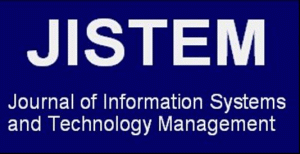| (Chiu et al., 2011Chiu, C. M., Wang, E. T., Shih, F. J., & Fan, Y. W. (2011). Understanding knowledge sharing in virtual communities: An integration of expectancy disconfirmation and justice theories. Online Information Review, 35(1), pp. 134–153) |
Adaptation |
Social Interaction, Quality, Value, and Self-Efficacy. |
| (Lin, 2011Lin, K. M. (2011). E-learning continuance intention: Moderating effects of user e-learning experience. Computers & Education, 56, pp. 515–526) |
Adaptation |
Usability, Usability Disconfirmation, and Attitude. |
| (Hung & Cho, 2008Hung, H., & Cho, V. (2008). Continued usage of e-learning communication tools: A study from the learners perspective in Hong Kong. International Journal of Training and Development.) |
Adaptation |
Usability, Quality, Self-Efficacy, Compatibility, and Expected Performance. |
| (Liao et al., 2007Liao, C., Chen, J. L., & Yen, D. C. (2007). Theory of planning behavior (TPB) and customer satisfaction in the continued use of e-service: An integrated model. Computers in Human Behavior, 23, pp. 2804–2822) |
Adaptation |
Usability, Usability Disconfirmation, Attitude, and Subjective Norms. |
| (Chou et al., 2010Chou, S. W., Min, H. T., Chang, Y. C., & Lin, C. T. (2010). Understanding continuance intention of knowledge creation using extended expectation-confirmation theory: An empirical study of Taiwan and China online communities. Behaviour & Information Technology, 29(6), pp. 557–570) |
Replication |
Quality, Usability and Value. |
| (Cheung & Lee, 2011Cheung, C. M., & Lee, M. K. (2011). Antecedents and consequences of user satisfaction with an e-learning portal. International Journal of Digital Society, 2(1).) |
Replication |
Quality, and VLE Technical Attributes |
| (Lee et al., 2011Lee, Y. H., Hsieh, Y. C., & Hsu, C. N. (2011). Adding innovation diffusion theory to the technology acceptance model: Supporting employees intentions to use e-learning systems. Educational Technology & Society, 14(4), pp. 124–137) |
Adaptation |
Quality, Usability, Utility, and Subjective Norms |
| (Paechter et al., 2010Paechter, M., Maier, B., & Macher, D. (2010). Students expectations of and experiences in e-learning: Their relation to learning achievements and course satisfaction. Computers & Education, 54, pp. 222–229) |
Adaptation |
Behavioral Intentions, and Quality |
| (Roca et al., 2006Roca, J. C., Chiu, C. M., & Martínez, F. J. (2006). Understanding e-learning continuance intention: An extension of the technology acceptance model. International Journal of Human Computer Studies, 64, pp. 683–696) |
Adaptation |
Quality, Usability, Utility, and Attitude |
| (Chiu et al., 2005Chiu, C. M., Hsu, M. H., Sun, S. Y., Lin, T. C., & Sun, P. C. (2005). Usability, quality, value and e-learning continuance decisions. Computers & Education, 45, pp. 399–416) |
New Model |
Quality, Usability, Value, Quality Disconfirmation, Usability Disconfirmation, and Value Disconfirmation |

 Source: Adapted from
Source: Adapted from  Source: Research results (2015)
Source: Research results (2015)